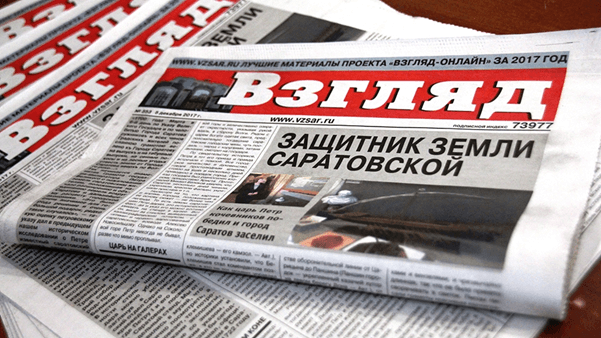It should have seemed that things settled down between Belgrade and Moscow after the apologies of Putin, Lavrov and Zakharova herself regarding her vulgar comment on President Vučić. As many times before, it turned out that things are not as they seem with the Russians. The insulting and vulgar treatment of Serbia by Moscow continued with even more fervor, the main target are again the leading people in Belgrade, and the difference is only in the form. Zakharova does no longer insult personally, she only determined the direction with her bosses, and journalists and media very close to the Kremlin continue their work.
President Vučić’s decision to re-nominate Ana Brnabić as the prime minister-designate of the Government of Serbia was the reason for Moscow’s “Vzglyad” to deal with her biography and career, but also with the political biography of the Serbian president. It would seem, at first glance, a completely natural reaction of the media, which holds the reputation of a serious interpreter of international relations. But, again, nothing is as it seems with the Russians, because from the title of the long “analysis” it is clear that you are entering the space that was “marked” a month ago by the spokeswoman of Russian diplomacy, the space of vulgar humiliation of Serbia and its leaders. The headline “A new era of relations between Serbia and the United States will be opened by a gay woman” clearly indicates the level at which the portal, whose founder is the Social Research Expert Institute, directly subordinate to the head of the presidential administration, Anton Vaino, will deal with Serbia.
Ana Brnabić will be presented to the Russian public as “an openly gay woman with strong ties to the State Department and the Rockefeller family”, that she worked for USAID, which was abolished in Russia in 2012, that she had a child with her partner through artificial insemination… If even this was not enough for them to create a dark picture of Serbia’s leadership, “Vzglyad” leaves nothing to chance. Emphasizing that Serbia is a parliamentary republic, in which the main power does not belong to the president, but to the Prime Minister Ana Brnabić, the author explains – “to the State Department, Rockefeller, LGBT lobby”. So, all the biggest enemies of Putin’s Russia.
Aleksandar Vučić did not fare much better at the pro-Kremlin portal either. He was described as an experienced but fickle politician who crossed the path from the point where Europeans told him that “The Hague is crying for people like him and Dačić” to the leader who advocates Serbia’s EU membership and proposes Ana Brnabić for the prime minister, as the “product of the western incubator”. Therefore, Serbia was seized by “American agents of influence”, as the Russian commentator says, and all that remains is to wait for Belgrade’s entry into NATO, although that is not certain, at least in the medium term.
The Serbian president has long been an extremely suspicious, fickle partner in the eyes of influential Russian media, especially because of his good relations with the West. Although Russian leaders do not tell him that (because nothing is as it seems with them), he can hear it quite clearly and openly from the big media, which are under the unquestionable influence of the same officials. All members of the Russia Today media complex, numerous portals such as “Regnum” or “Vzglyad”, are the largest and most influential opposition that Aleksandar Vučić has at the moment. Their views, their interlocutors who they choose from Serbia, clearly show that Russia wants to see a completely different policy in Belgrade than the one led by Vučić. Of course, there are other protagonists of that policy, to whom he gives a wide space for their promotion.
Serbia as it is today is not the Serbia that Moscow wants, and that is especially visible after the agreements that were reached in the White House regarding Kosovo a month ago. By the way, the author of “Vzglyad” called the agreements “Trump’s trick”. Maria Zakharova’s comment on the Washington agreements at the time, although covered with great apologies, continued to live on through media comments about Serbia and its president, who were equally rude and arrogant. We can understand them to some extent, because it is certainly not pleasant to pay attention to the poisoning of Navalny, abandoning Armenia, an ally of the CSTO, the crisis with COVID, the economy in constant decline… So, with all those topics that Russia fills the front pages all over the world, except in Russia itself.
And so that things do not remain unresolved for the Russian public, at least when it comes to Serbia and its state leadership, we should be reminded from time to time what, in fact, is the Russian interest in the Balkans and why Vučić and today’s Serbia do not fit into that mosaic. And “Vzglyad” made an effort to do that, so it reports that the agreements from Washington will not last long and that “the situation in the region will soon return to normal – to a chronic crisis”!? It is precisely the “chronic crisis” in the Balkans, what is for Russia, the Kremlin, their media – normal and therefore desirable. So far from what Serbia wants, as far as Russia.
